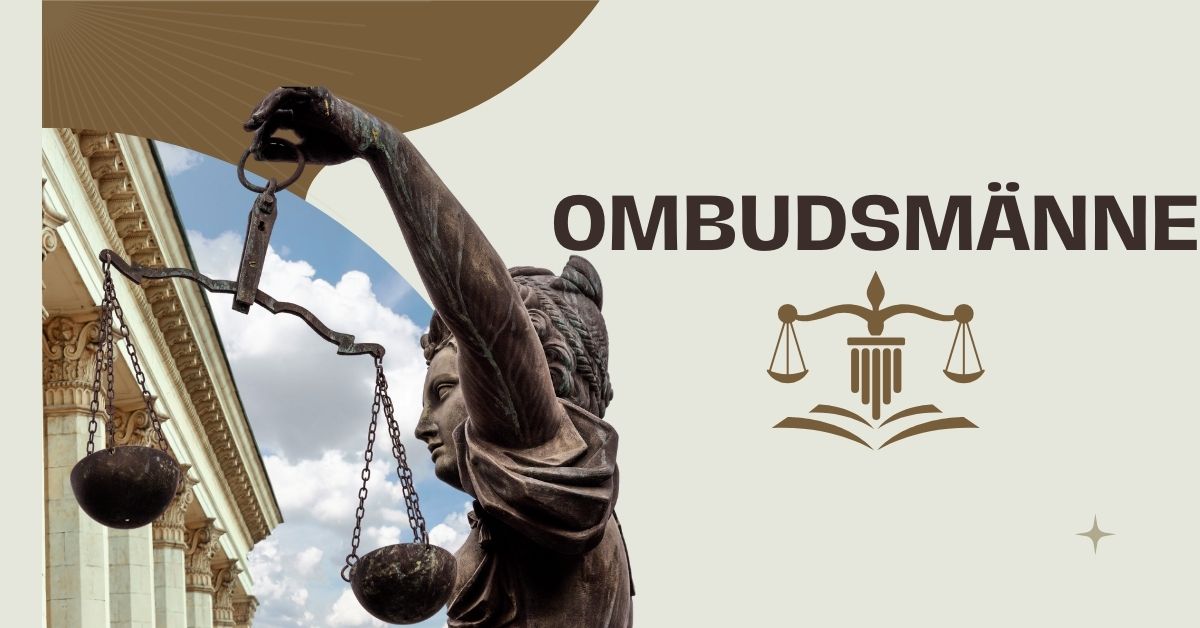In a world where systems often feel Ombudsmänner overwhelming, bureaucratic, or even unfair, there exists a role designed to bridge the gap between institutions and individuals: the Ombudsmänner. Rooted in principles of justice, impartiality, and transparency, ombudsmen (or Ombud smänner in German) serve as mediators and watchdogs, ensuring that citizens, employees, and organizations can voice grievances and find fair solutions without bias.
This article takes you through the origins, roles, importance, and evolving significance of Ombud smänner in modern society.
What Does “Ombudsmänner” Mean?
The term “ombudsman” originates from Swedish, where “ombud” means representative or agent. In German, the plural form is Ombud smänner, though “Ombudsleute” (gender-neutral) is also common today. At its core, the title represents an independent official who investigates complaints against government agencies, companies, or institutions and helps resolve conflicts fairly.
Ombud smänner are not lawyers, judges, or politicians—they are independent mediators tasked with protecting people’s rights and promoting accountability within systems.
Historical Origins of Ombudsmänner
The roots of the Ombudsman role go back to Sweden in 1809, when the Swedish Parliament introduced it as part of their constitutional reforms. The goal was clear: create an independent authority to oversee government actions and protect citizens from misuse of power.
From Sweden, the concept spread across Europe and beyond. By the 20th century, many democratic countries—including Germany, the UK, and Canada—adopted the Ombudsman system to strengthen trust in governance. Today, Ombud smänner exist in government institutions, universities, corporations, and even media organizations.
Key Roles and Responsibilities of Ombudsmänner
While the specifics may vary depending on the context, Ombud smänner generally share a common set of responsibilities:
1. Handling Complaints
Ombudsmänner receive complaints from individuals who feel unfairly treated by an authority. These may include government services, workplace disputes, or even university administration issues.
2. Mediation and Conflict Resolution
Rather than going straight to court, Ombudsmänner help parties reach a mutual agreement through dialogue and negotiation. Their focus is on fairness, not punishment.
3. Investigating Misconduct
They have the authority to investigate claims of administrative abuse, discrimination, or unfair practices within organizations. Importantly, they act independently and without bias.
4. Promoting Transparency
By holding institutions accountable, Ombudsmänner push for openness in decision-making processes, ensuring that citizens or employees understand how and why decisions are made.
5. Advising on Reforms
Beyond resolving individual disputes, Ombud smänner often recommend systemic improvements to prevent similar issues in the future.
Different Types of Ombudsmänner
Ombudsmänner exist across multiple sectors, each with its unique focus:
- Government Ombudsman – Handles complaints against public authorities, ensuring fair administration.
- Corporate Ombudsman – Resolves disputes within businesses, often dealing with workplace harassment, ethics violations, or consumer complaints.
- University Ombudsman – Provides students and faculty with a safe space to raise concerns about academic fairness, discrimination, or procedural issues.
- Media Ombudsman – Monitors journalistic integrity and addresses public complaints about unfair or biased reporting.
- Financial Ombudsman – Helps resolve disputes between consumers and financial institutions like banks and insurance companies.
This diversity highlights how Ombudsmänner adapt to serve the needs of different environments.
Why Ombudsmänner Are Important
In an increasingly complex world, people often feel powerless against large organizations or governments. Here’s why Ombud smänner play a crucial role:
✅ Accessibility
Ombudsmänner provide an approachable and affordable alternative to court proceedings, saving time and resources.
✅ Impartiality
They operate independently, which means individuals can expect fair treatment without fear of bias.
✅ Trust Building
By ensuring accountability, Ombud smänner restore public trust in institutions.
✅ Prevention of Escalation
They help resolve issues early, preventing them from turning into costly legal battles or public controversies.
✅ Systemic Change
Beyond individual complaints, Ombud smänner push organizations to improve processes, ensuring long-term fairness.
Ombudsmänner in Germany
Germany has embraced the Ombudsman model across various sectors. For example:
- The Parliamentary Ombudsman for the Armed Forces (Wehrbeauftragter) monitors the rights of soldiers and ensures fair treatment in the military.
- Consumer Ombudsmen handle issues with financial services, utilities, and telecommunications.
- University Ombudsleute provide mediation in academic disputes between students and staff.
In all cases, the emphasis remains on fairness, neutrality, and accessibility.
Challenges Faced by Ombudsmänner
While the role is vital, Ombudsmänner are not without challenges:
- Limited Authority – Some Ombud smänner can only make recommendations rather than enforce binding decisions.
- Awareness Gap – Many people remain unaware of their right to approach an Ombudsman.
- Resource Constraints – High caseloads and limited staff can slow down resolution times.
- Maintaining Independence – It can be challenging to remain fully impartial, especially when funded by the very institutions they oversee.
Despite these challenges, Ombudsmänner continue to grow in importance globally.
The Future of Ombudsmänner
As technology evolves and societies become more interconnected, Ombudsmänner are adapting their practices. Some future trends include:
- Digital Ombuds Services: Online complaint systems that make access easier for citizens worldwide.
- AI-Assisted Case Review: Using artificial intelligence to filter, categorize, and manage complaints more efficiently.
- Focus on Diversity and Inclusion: Expanding their role to address systemic discrimination and promote inclusive policies.
- Cross-Border Ombuds Cooperation: Collaborating internationally to address issues like digital rights, environmental concerns, and global consumer protection.
In short, Ombudsmänner are set to remain vital mediators in a fast-changing world.
Conclusion
Ombudsmänner represent much more than just complaint handlers—they are guardians of fairness, mediators of conflict, and champions of accountability. By offering impartial solutions, they empower individuals to speak up against injustice while guiding institutions toward more transparent and ethical practices.
In times when trust in systems can feel fragile, Ombud smänner remind us that fairness and justice are not abstract ideals but values that can be practiced every day.
FAQs About Ombudsmänner
Q1: Is an Ombudsman the same as a lawyer?
No. Ombudsmänner are independent mediators, not legal advocates. They don’t take sides but work toward fair solutions.
Q2: Are Ombudsmänner decisions legally binding?
This depends on the jurisdiction and institution. Some Ombud smänner only make recommendations, while others can issue binding resolutions.
Q3: Who can approach an Ombudsman?
Anyone—citizens, employees, students, or consumers—who feels unfairly treated by an authority or institution can file a complaint.
Q4: Is it free to consult an Ombudsman?
In most cases, yes. Ombud smänner services are usually free of charge, especially in public and consumer protection sectors.
Q5: Are Ombudsmänner only found in government?
No. Ombudsmänner exist in businesses, universities, media organizations, and financial institutions as well.

